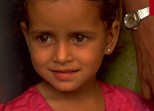New research alerts from HealthMatters Community Academic Partnership - Below are four new research alerts for the MAT TAC Bulletin Update:
![]() 1. One of the main findings was that people with ID, their carers and parents were unaware of the benefits of eye testing having believed that their son/daughter did not need glasses as they could not read.Others felt their son/daughter would not be able to read the letters in the eye examination so felt it would have been a waste of time. For some people with ID they often relied on others to make their appointments so had little knowledge of how to do this.
1. One of the main findings was that people with ID, their carers and parents were unaware of the benefits of eye testing having believed that their son/daughter did not need glasses as they could not read.Others felt their son/daughter would not be able to read the letters in the eye examination so felt it would have been a waste of time. For some people with ID they often relied on others to make their appointments so had little knowledge of how to do this.
Please read further here.
2. Many direct-service providers recognized the benefits from exercise, athletic, and recreational activities. They also identified several prerequisite skills that children and youth with I/DD should have to participate meaningfully. These skills included the ability to respond to verbal/physical prompts and follow simple instruction. As well, the respondents endorsed several barriers to conducting these activities including fear of injury and safety concerns.
Please read further here.
3. The findings indicate that Health Care Support Workers (HCSWs) invest a great deal of their time on emotional and social support as well as on assisting in the provision of personal care. They are also involved in providing care for the dying, respite care for family members and offer domestic support. The findings suggest three challenges in the HCSWs role: emotional attachment, role ambiguity, and inadequate training. Support factors such as informal peer grief-support groups, sense of cohesiveness among HCSWs and task orientation enabled HCSWs to overcome these challenges.
Please read further here.
4. We designed a health self-advocacy curriculum that taught people with ID to recognize their health rights, such as having a doctor speak to you in a way that you would understand. Players watched short video clips and had to say whether the person's health right were being violated and what the person could do about it. The participants who played the game had higher scores on self-advocacy measures and actual use of self-advocacy skills than the participants who did not play the game.
Please read further here.
HealthMatters Alerts: www.HealthMattersProgram.org


 From the website of Jonkoping University: CHILD is an acronym for Children, Health, Intervention, Learning and Development. Our primary research focus is on interventions, participation, learning, health and everyday functioning in children with special needs, but also in typically developing children. We study factors that influence development, learning and health in children.
From the website of Jonkoping University: CHILD is an acronym for Children, Health, Intervention, Learning and Development. Our primary research focus is on interventions, participation, learning, health and everyday functioning in children with special needs, but also in typically developing children. We study factors that influence development, learning and health in children. From website of Center on the Developing Child at Harvard University: At a time when inequalities in school achievement, workforce skills, and lifelong health status compromise a nation's competitiveness in a global economy, the need for new ideas to break the intergenerational cycle of poverty around the world is critical. Science tells us that the foundations for successful adulthood are established early in life. The substantial gap between what we know about the roots of growing disparities in health, learning, and behavior and what we are doing to promote the well-being of vulnerable children internationally provides a compelling agenda for strengthening policies and investments that focus on the earliest years of life.
From website of Center on the Developing Child at Harvard University: At a time when inequalities in school achievement, workforce skills, and lifelong health status compromise a nation's competitiveness in a global economy, the need for new ideas to break the intergenerational cycle of poverty around the world is critical. Science tells us that the foundations for successful adulthood are established early in life. The substantial gap between what we know about the roots of growing disparities in health, learning, and behavior and what we are doing to promote the well-being of vulnerable children internationally provides a compelling agenda for strengthening policies and investments that focus on the earliest years of life.